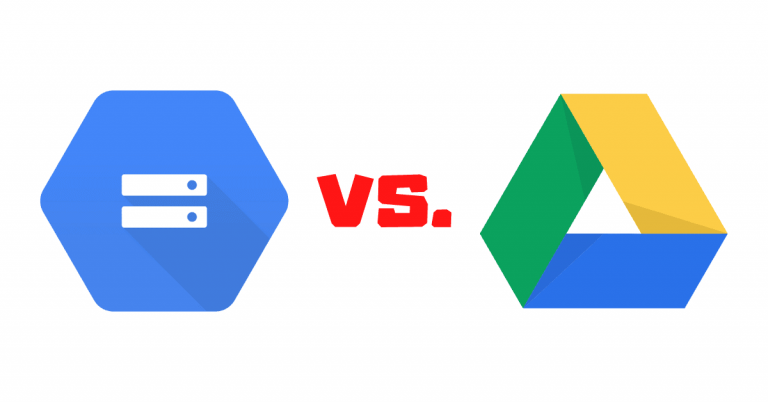9 Importance of Contract Risk Management Software in Streamlining Business Operations

Contracts play a crucial role in the operations of every industry. But with growing competition and compliance rules, companies need robust systems to manage contract risks and obligations. This is where contract management software proves invaluable. It optimizes contract workflows and reduces errors.
The Strategic Imperative of Efficient Contract Management
Contracts codify business relationships, payments, responsibilities, and more. Failure to manage contracts invites financial, legal, and reputational risks. Let’s explore how it both protects and financially benefits companies. Effective contract management can save up to 2% of annual costs, as per CMSD.
Features such as centralized databases, automated tracking, and AI analysis offer comprehensive contract visibility. Contract risk management software provides insights to reduce risks and capitalize on savings. It’s improving both legal and financial positions. Additionally, the software ensures compliance with both regulations and company policies. Investing in contract management solutions is, therefore, a prudent strategy for long-term success.
Streamlining Contract Management: A Game Changer
While understanding the strategic value is crucial, the operational benefits are transformative. Streamlining contract management, as reported by CMSD, can accelerate negotiation cycles by 50%. Also, reduces inaccurate payments, and marks a game-changing shift in business operations.
Automating contract tracking, approvals, alerts, and reporting streamlines the entire contract lifecycle.” Workflows become efficient by eliminating manual tasks and bottlenecks. All stakeholders get access to accurate, real-time data to check reviews and approvals. Seamless collaboration also facilitates faster negotiation and execution of contracts. This software transforms contract management into a strategic advantage.
Enhanced Compliance and Risk Management
This operational efficiency plays a pivotal role in compliance and risk management. A critical aspect is that 70% to 80% of businesses are governed by contracts, according to research.
The software enables setting alerts for renewals, payments, and termination dates.
Automated notifications prevent missed deadlines and non-compliance. Customized reports provide audit-ready information for legal and regulatory requirements. Centralized contract data makes it easy to identify risky terms and obligations. These capabilities reduce contractual risks that could lead to financial penalties or lawsuits.
Boosting Efficiency and Productivity
Beyond compliance, contract management software also boosts efficiency and productivity. Automating contract processes can save lawyers up to 82% of time per Reuters – showing major potential to streamline complex tasks.
For example, standard contracts can be created from pre-approved templates, clauses, and terms. This removes the need to draft manual repetitive agreements. Automatic extraction of metadata and terms eliminates reviewing and entering contract details.
Employees are freed from these tedious tasks to focus on high-value responsibilities. Enhanced productivity and job satisfaction create a win-win situation.
Improved Visibility and Control Over Contract Lifecycle
Comprehensive analytics dashboards in contract software provide real-time visibility into all stages – from request, drafting, and negotiations to execution, compliance, and amendments. Users get a holistic overview along with insights into bottlenecks like delayed approvals.
Key contract details and obligations are accessible for review before negotiations or renewals. Progress tracking allows for managing renewals and expirations. The software also enhances control over contract execution by offering features such as automated routing, compliance enforcement, and deadline notifications. This end-to-end visibility and control are essential for successful contract management.
Centralized Access and Secure Storage
Contracts and related documents are accessible anytime, from anywhere via online contract repositories. This eliminates the hassles of tracking paper documents across physical locations. Role-based permissions also enhance security and data privacy.
Centralization ensures all employees view a single, verified source of truth. Rapid search makes finding contracts quick and easy. Secure cloud storage also facilitates backup alongside electronic signature support for paperless contracting. Having contracts and related information in one place simplifies management while promoting enterprise-wide collaboration.
Customization vs Ready-Made: Key Decision Factors
Organizations have the option to develop custom contract software or purchase ready-made systems. The choice depends on budget constraints, business requirements, and IT capabilities. Custom systems allow tailoring to unique processes but can be expensive and time-consuming. Off-the-shelf software offers faster deployment with reduced upfront costs.
Small businesses may opt for ready-made solutions due to their lower cost and minimal support needs. Large enterprises can choose customized platforms for greater flexibility to accommodate complex needs. Scalability, integration, and ease of use are key factors to consider. The decision requires examining long-term business objectives and growth trajectory.
Industry-Specific Software Applications
Contract management software provides specialized capabilities across sectors to address unique challenges:
- Construction: Manage bids, permits, invoices, and track project milestones
- Healthcare: Maintain patient consents and service contracts with HIPAA compliance
- Government: Automate RFP, grants, and regulatory processes with security features
- Technology: Streamline NDA, licensing, and legal agreements for products and IP
While core features are common, the systems can be tailored to meet industry-specific regulations and workflows through custom fields, templates, and permissions.
The Long-Term Strategic Benefits
The initial investment in contract management software yields long-term returns by supporting business growth. Companies gain an adaptable infrastructure to scale as needs evolve while ensuring consistency and compliance.
Centralized data enables harnessing actionable insights through analytics. The software also strengthens supplier relationships by tracking obligations. Automation and streamlining of contracting processes result in significant time and cost savings that improve productivity and ROI.
Optimized contract management minimizes revenue leaks and risks, providing a competitive advantage. For these strategic reasons, digital contract management is a must-have for forward-looking enterprises seeking to accelerate success.
Conclusion
In today’s business landscape, managing contract lifecycles is pivotal to operational efficiency and risk mitigation. As highlighted throughout this article, purpose-built contract management software solutions empower organizations to transform legacy contracting processes through automation, analytics, and collaboration.
The long-term benefits of investing in these platforms are multifold – from driving productivity to ensuring compliance and accelerated growth. Through the implementation of contract management software, enterprises can secure a lasting strategic advantage.
FAQs
How does contract management software enhance legal compliance and risk management?
It minimizes compliance risks by providing reminders on renewals and expirations while standardizing processes to meet regulations. Automated reports also help demonstrate compliance during audits. Centralized data aids analysis of contractual risks.
What are the key considerations when deciding on contract management software?
Main factors include budget, level of customization needed, ease and speed of implementation, scalability for future growth, integration with existing systems, and availability of IT resources to support a custom platform.
Can contract management software be adapted to specific industry needs, and how?
Yes, contract software allows customization of fields, templates, workflows, and user roles to meet unique industry requirements related to compliance, security, contracting norms, etc. Software vendors also provide targeted solutions for major industries.






